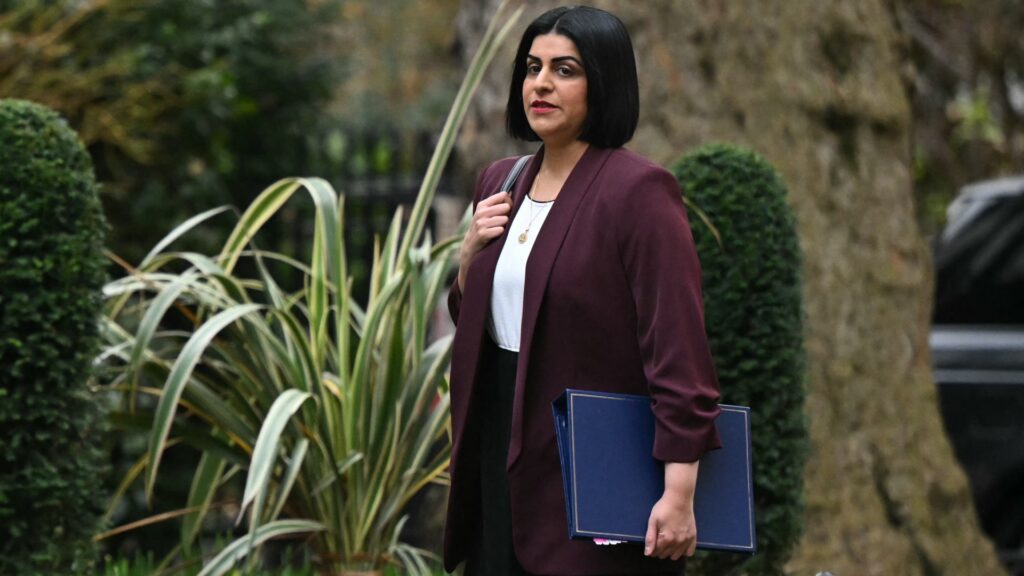Shabana Mahmood has become the UK’s new home secretary at a tense time. She will oversee the country’s policy on migration, refugees, policing and national security in a period where the right-wing populist party Reform is dominating opinion polls.
Previously the justice secretary, Mahmood was promoted on Friday after a major reshuffle following the resignation of Angela Rayner as deputy prime minister.
A key subject matter that has already played a significant role in Mahmood’s political life – and will undoubtedly continue to do so – is the situation in Israel and Palestine.
Mahmood, who is the first Muslim woman to lead one of the four great offices of state, has prided herself on her record of promoting Palestinian rights.
On her website, she lists all the occasions since becoming a parliamentarian in 2010 that she has used her platform to speak about Palestine.
New MEE newsletter: Jerusalem Dispatch
Sign up to get the latest insights and analysis on
Israel-Palestine, alongside Turkey Unpacked and other MEE newsletters
It includes signing a motion in June 2010 which condemned Israel’s deadly attack on a flotilla ship headed towards Gaza which killed 10 people.
The motion called for an immediate end to Israel’s blockade on the enclave.
She has also voted for the recognition of a Palestinian state, warned against the Israeli annexation of Palestinian territory, and called for the UN to publish a list of companies who trade with businesses operating in illegal Israeli settlements.

UK election 2024: Labour’s Shabana Mahmood fends off challenge from Akhmed Yakoob
Read More »
In 2014, she took part in a protest outside a branch of the Sainsbury’s supermarket chain, calling on it to stop stocking goods from illegal Israeli settlements in occupied Palestine.
At the time, she was condemned by the Jewish Leadership Council for “promot[ing] public disorder that forced a supermarket to close”.
In more recent years, her record has come under scrutiny from supporters of Palestinian rights and justice.
She abstained on a key vote in November 2023, brought forward by the Scottish National Party, which called for a ceasefire in Gaza.
She stood by the leadership of the Labour Party, as it came under increasing pressure from figures within the party to take a stronger stance against Israeli actions.
As a result, independent candidate Akhmed Yakoob stood against Mahmood in her constituency of Birmingham Ladywood in the 2024 general election, campaigning mostly on the issue of the war on Gaza.
Yakoob slashed Mahmood’s majority from 28,582 in 2019, to just 3,421.
‘Clearly Anti-Palestinian’
A website called “MP War Crimes”, which rates the record of British parliamentarians based on their recent stances, considers Mahmood to be “Clearly Anti-Palestinian”.
It cites, among other things, her not signing letters to enforce sanctions on Israel, or to uphold International Criminal Court arrest warrants against Israeli war criminals.

Palestine Action campaigners seeking to lift ban rounded up in dawn raids
Read More »
It does however note that Mahmood is a member of Labour Friends of Palestine, and that last year she voted against making the boycott, divestment, sanctions movement illegal for public sector bodies.
The Guardian reported that Mahmood, as well as Wes Streeting and Hilary Benn, were the leading figures within the cabinet who called for Britain to move to recognise Palestinian statehood.
But anyone who thought she might change the UK’s stance on the proscribed organisation Palestine Action was left disappointed this weekend.
Mahmood stated on Sunday: “Supporting Palestine and supporting a proscribed terrorist group are not the same thing.”
The UK government proscribed Palestine Action under anti-terror laws on 4 July, following an incident in which members broke into RAF Brize Norton earlier this month and spray-painted two planes they said were “used for military operations in Gaza and across the Middle East”.
New legislation has made membership of and support for Palestine Action a criminal offence punishable by up to 14 years in prison – the first time a direct action group has been proscribed in the UK as a terrorist group.
UN experts, human rights groups, and leading figures have condemned the ban as draconian, warning that it will have adverse consequences for the freedom of expression and implications for the rule of law.
‘[Mahmood] backed officers for arresting those who support the proscribed terrorist organisation Palestine Action’
– Home Office statement
Thousands of protesters have been arrested for demonstrating against the ban, including 890 people who were arrested in London on Saturday.
Over the weekend, the Home Office posted pictures of Mahmood with Mark Rowley, the head of the Metropolitan Police, in the specialist operations control room during Saturday’s protests.
“She backed officers for arresting those who support the proscribed terrorist organisation Palestine Action,” the Home Office wrote on X.
Her stance on Palestine Action, in line with that of predecessor Yvette Cooper, came under intense scrutiny on social media.
With Labour’s vote seemingly collapsing in opinion polls, Mahmood faces a delicate balancing act ahead of the next general election, which is due no later than the summer of 2029.
Far-right voters are unlikely to become overnight fans of a minister of Muslim origin despite her initially strong rhetoric against unauthorised migration.
But voters opposing the ongoing genocide in Gaza may feel she betrayed the cause by adopting the government’s line on the atrocities committed by Israel.

